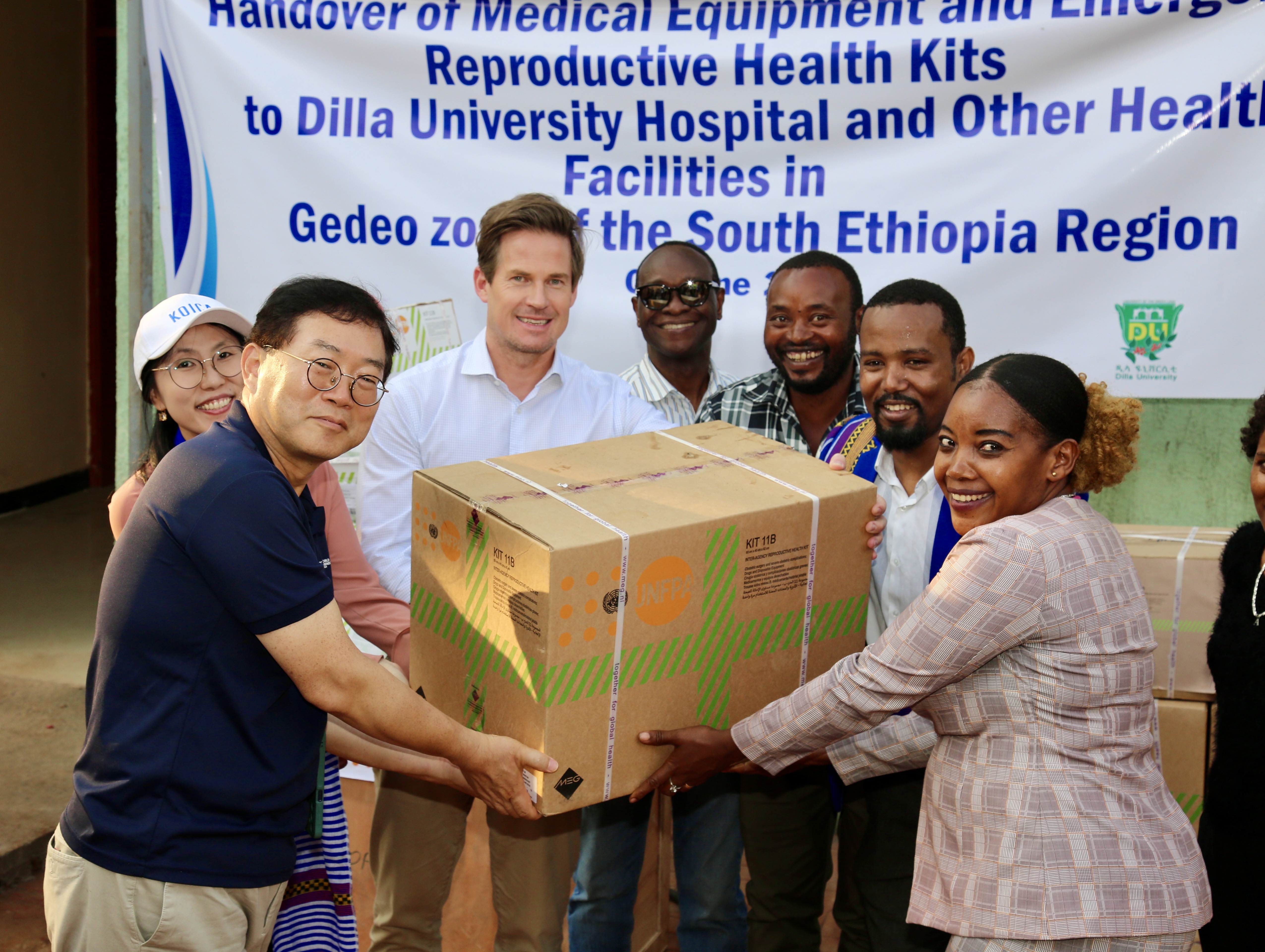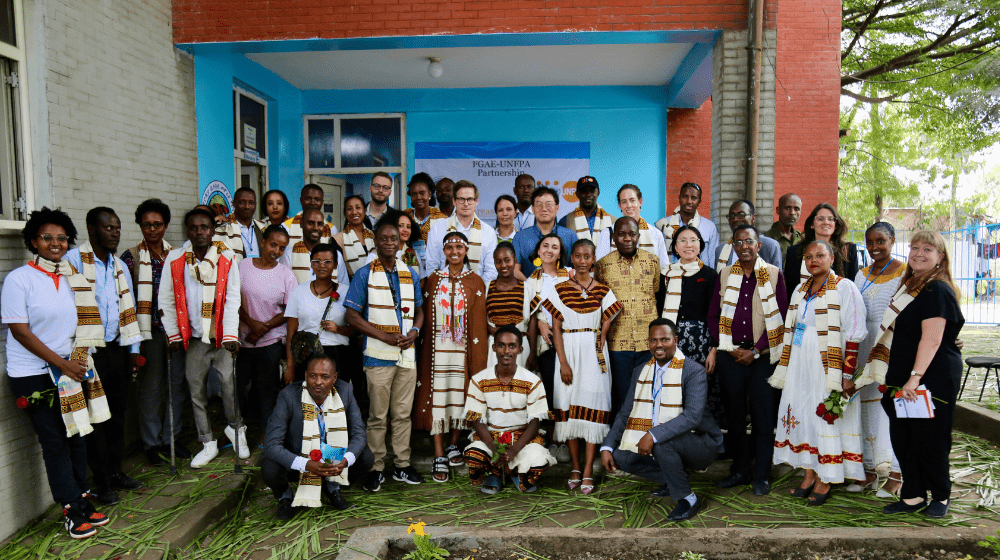Hawassa, Sidama Region & Dilla, South Ethiopia Regional State – From June 4 to 5, 2024, a high-profile joint donor mission visited UNFPA-supported interventions in Hawassa and Dilla towns, in the Sidama and South Ethiopia regions, respectively. The delegation included H.E. Hans Henric Lundqvist, Ambassador of Sweden to Ethiopia, and representatives from the Embassies of Denmark, Spain, Canada, Australia, and South Korea (KOICA).
This mission aimed to strengthen initiatives in these regions by showcasing ongoing efforts, achievements, and good practices in integrated Gender-Based Violence (GBV) and Sexual and Reproductive Health (SRH) programming. It also sought to mobilize additional support to ensure a sustained response to the needs of women, girls, and youth and explore potential areas of future collaboration.
The mission began with a courtesy visit to the South Ethiopia Regional State Administration, where the Head of Gedeo Administration highlighted the importance of UNFPA’s support in strengthening health institutions and enhancing access to safe deliveries, SRHR, and GBV prevention and response services. He emphasized the need for sustainable and scaled-up interventions, especially for vulnerable groups.
Visit to Haroressa Health Center and Dilla University Referral Hospital
The mission team visited the Haroressa Health Center, where they were briefed on the improvements in service quality due to capacity building of health professionals, provision of medical equipment, and support for outreach activities. Midwives expressed their gratitude for capacity-building activities, including training on family planning, Basic Emergency Obstetric and Newborn Care (BEmONC), and adolescent and youth-friendly SRH services.
At the Dilla University Referral Hospital, the team observed the ongoing renovation aimed at upgrading the facility to a comprehensive specialized hospital. Despite the renovation, the One-Stop Center (OSC) for GBV survivors continued to function, providing integrated services, including psychosocial support, medical care, legal assistance, and referral linkages.
The GBV Case Manager at the OSC emphasized the need for additional facilities to expand regional coverage and ensure timely, quality services for all survivors. "Establishing OSCs across districts is vital to address the needs of survivors, especially those from hard-to-reach areas," she said.

The second day included a courtesy visit to the Vice President of the Regional Government of Sidama, where regional heads of finance, health, and women's affairs presented the region's strategic plans and challenges. The discussions highlighted the scarcity of resources, critical shortages of medical equipment, and the high fertility rate's impact on social services.
Ambassador Lundquist reiterated the donor community's support for the region. "The participation of various donors in this joint mission underscores our collective commitment to supporting the region," he said. "Engaging men and boys is also crucial in saving women and girls' lives."
Koffi acknowledged the regional government's efforts and assured that the identified gaps would be considered in future planning. "We will incorporate these insights into our annual work plans and the new UNFPA Country Programme Document," he said.
The mission concluded with a handover ceremony at Dilla University Referral Hospital, where UNFPA provided medical equipment and emergency reproductive health kits. These resources, funded by the Korea International Cooperation Agency (KOICA), aim to strengthen the hospital's capacity to deliver BEmONC and CEmONC services, thereby reducing preventable maternal deaths.
Visit to Hawassa Industrial Park and AWSAD Safehouse
The team also visited the Hawassa Industrial Park, one of the largest in Ethiopia, where more than 80% of employees are female. In partnership with DSW, UNFPA supports the provision of SRHR and GBV services at the clinic, including a referral system with local hospitals and legal services. This initiative has reduced unintended pregnancies and absenteeism among female employees.
Finally, delegates also visited the AWSAD’s Safehouse in Hawassa, providing comprehensive support to GBV survivors. There, Ms. Maria Munir, AWSAD’s manager, emphasized the need to scale up rehabilitation homes to meet the needs of survivors in the region.
The joint donor mission underscored the collective commitment to bolstering women's and youth health and protection services in these regions and highlighted the importance of sustained collaboration and support for advancing gender equality and reproductive health rights.



